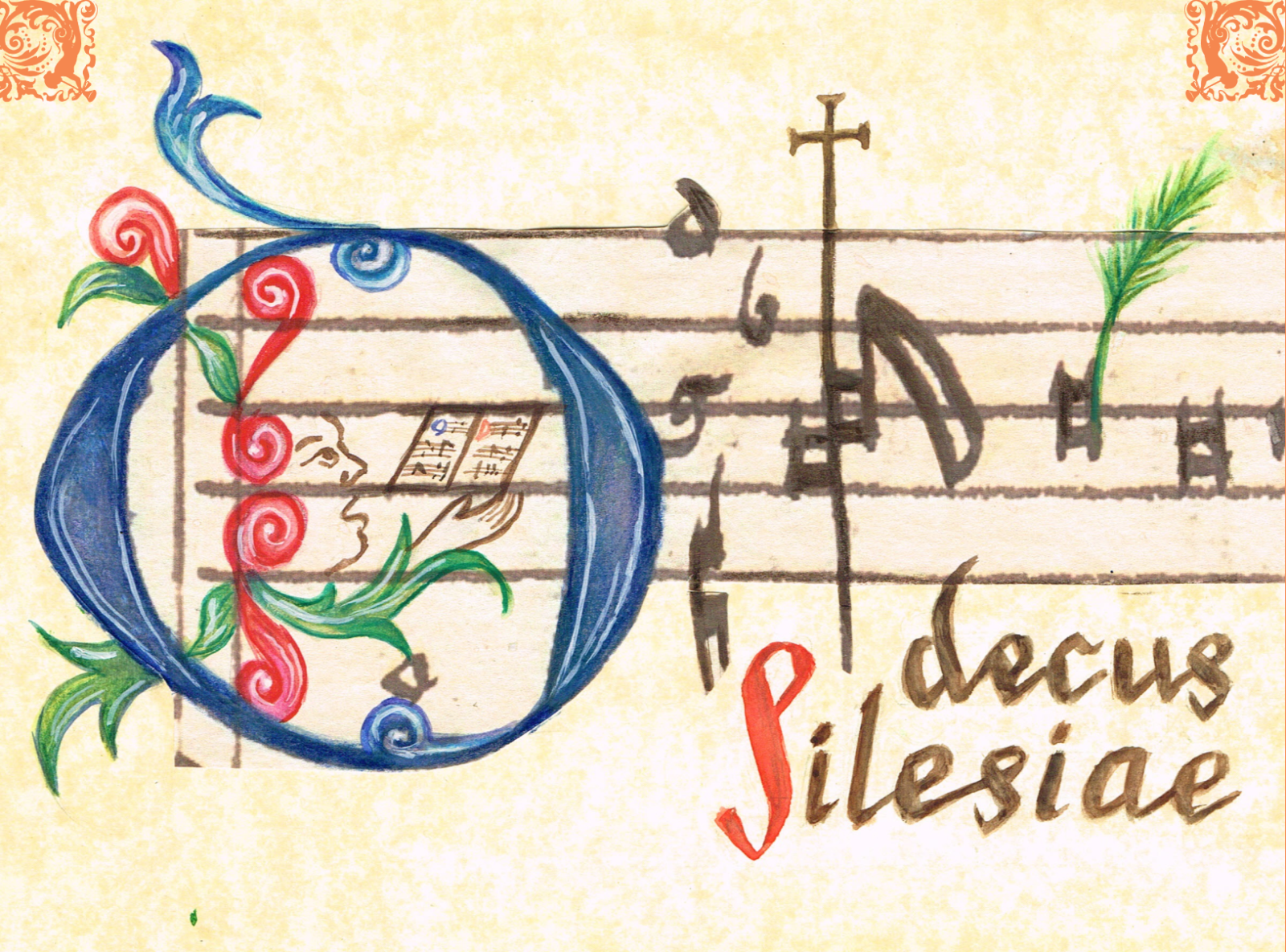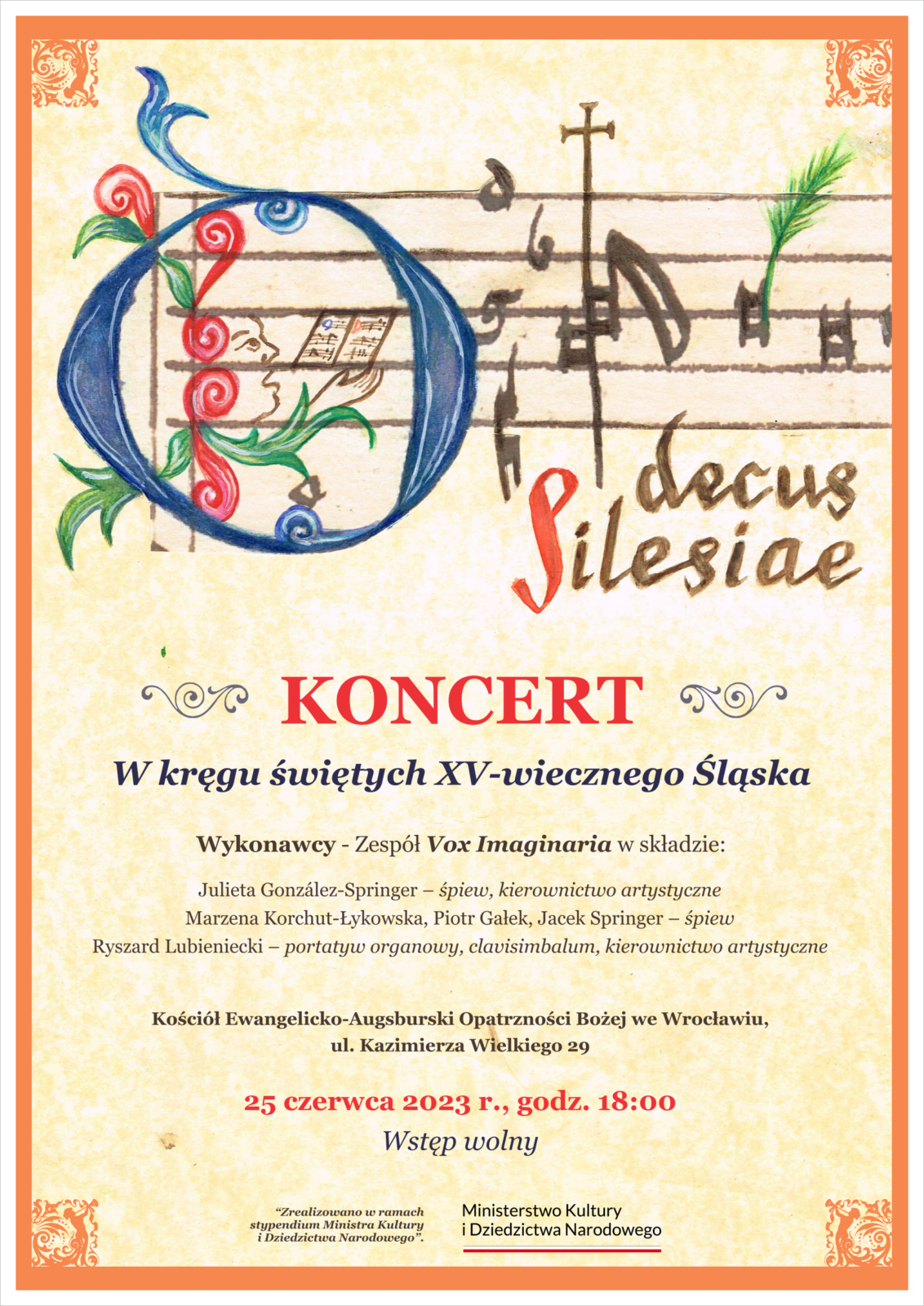
Medieval music concert
Medieval Silesia (stretching from today’s southwestern voivodeships to Lubuskie voivodeships) is an extremely important area for researchers and performers of old music. Numerous treaties and a rich repertoire of musical works, all testifying to Western and local influences, have survived to our times. These are mostly religious compositions reflecting life in the monasteries of that time and intended to reach the local religious believers. Therefore, it is unsurprising that the preserved works often refer to local saints, tell about their lives, and set a role model.
Exactly that repertoire will be heard during the ‘O decus Silesiae’ concert, which consists of three parts. The first part will be dedicated to St. John the Baptist, the patron saint of Wrocław, in the second part (titled ‘De omnibus sanctis’ – ‘About all the saints’) we have placed single compositions dedicated to such figures as St. Mary Magdalene, Elizabeth of Hungary or John the Evangelist. In the third part, there is another central person for this region, i.e., St. Hedwig of Silesia.
The concert will be an opportunity to hear rarely performed but extremely interesting works. We will mainly hear polyphonic compositions from the Żagań parts (known as Glogauer Liederbuch) and one-voice psalm compositions from the powiat Średzki – a manuscript containing a repertoire sung by students at the parish school in Środa Śląska in the second half of the fifteenth century. The program will be complemented by instrumental improvisations, performed on old keyboard instruments –portative organs (the smallest type of pipe organ) and clavisimbalum (the predecessor not only of later harpsichords but also pianos).
The performers of the concert are the Vox Imaginaria, composed of
- Julieta González-Springer – vocals, artistic direction
- Marzena Korchut-Łykowska, Piotr Gałek, Jacek Springer – vocals
- Ryszard Lubieniecki – portative organs, clavisimbalum, artistic direction
Kościół Ewangelicko-Augsburski Opatrzności Bożej we Wrocławiu, ul. Kazimierza Wielkiego 29 (Evangelical-Augsburg Church of Divine Providence in Wrocław, ul. Kazimierza Wielkiego 29)
25 June 2023, 18:00
The concert takes place as part of the ‘Wizje świętych w religijnym repertuarze muzycznym średniowiecznego Śląska’ project (‘Visions of saints in the religious musical repertoire of medieval Silesia’ project), implemented as part of the artistic scholarship of the Ministry of Culture and National Heritage received by Julieta González-Springer.
Vox Imaginaria
The core of Vox Imaginaria consists of Julieta González-Springer and Ryszard Lubieniecki, performers specializing in medieval music. They started their cooperation at the beginning of 2019, looking for compositions that could be performed limited only to voice and portative organs. The repertoire includes music from almost all regions of medieval Europe: from the Iberian Peninsula to historical Silesia. Both are associated with the Institute of Musicology of University of Wrocław.
Members of Vox Imaginaria studied with extraordinary performers of old music (including Marcel Pérès, Katarina Livljanić, Laurence Brisset, Benjamin Bagby, Patrizia Bovi and Corina Marti) organised by the Royaumont Foundation. They cooperate with various institutions (including Obszar Wspólny, Sztukupuku i Macondo [The Common Area, Sztukupuku and Macondo Foundation], Księgarnia Hiszpańska [the Spanish Bookshop], Alliance Française and Institute of Romance Studies of the University of Wrocław), to spread knowledge about medieval music in the form of concerts and workshops. They invite musicians from Wrocław to collaborate on the latest projects, which allows for further development of the band’s repertoire.
Translated by Martyna Szmyt (student of English Studies at the University of Wrocław) as part of the translation practice.




